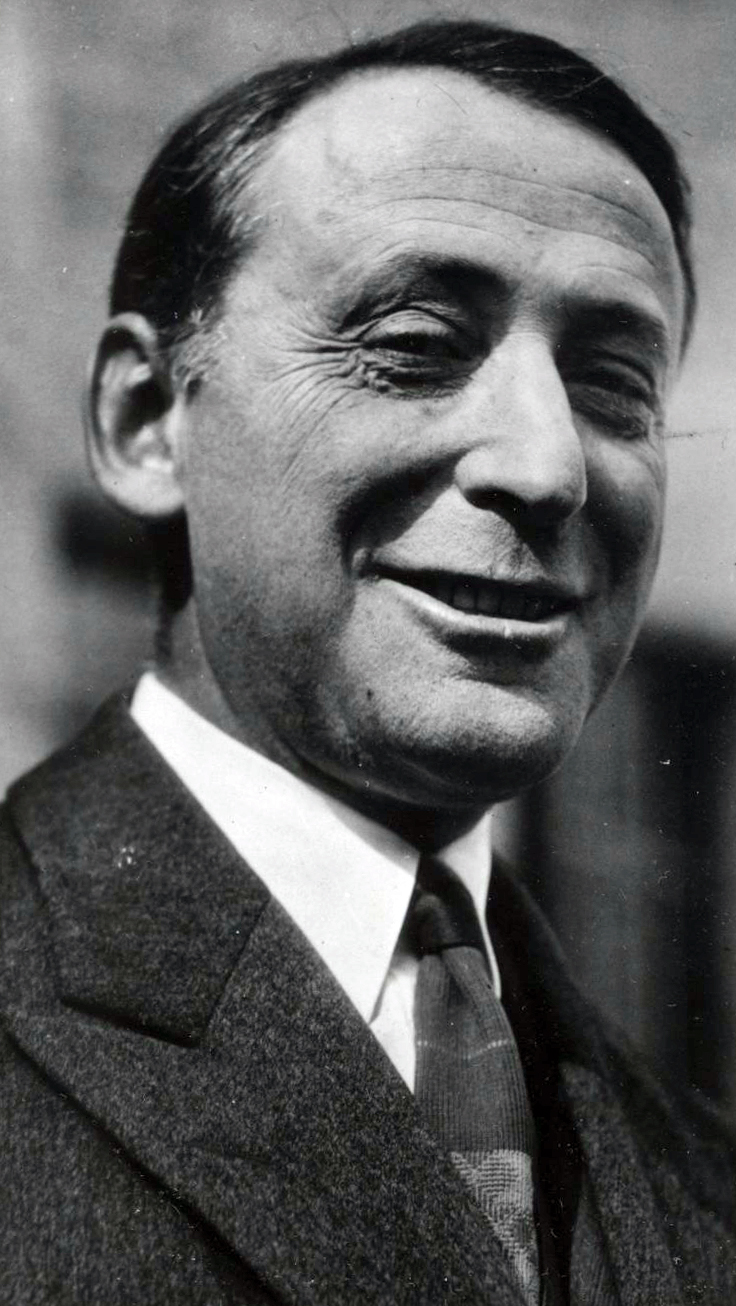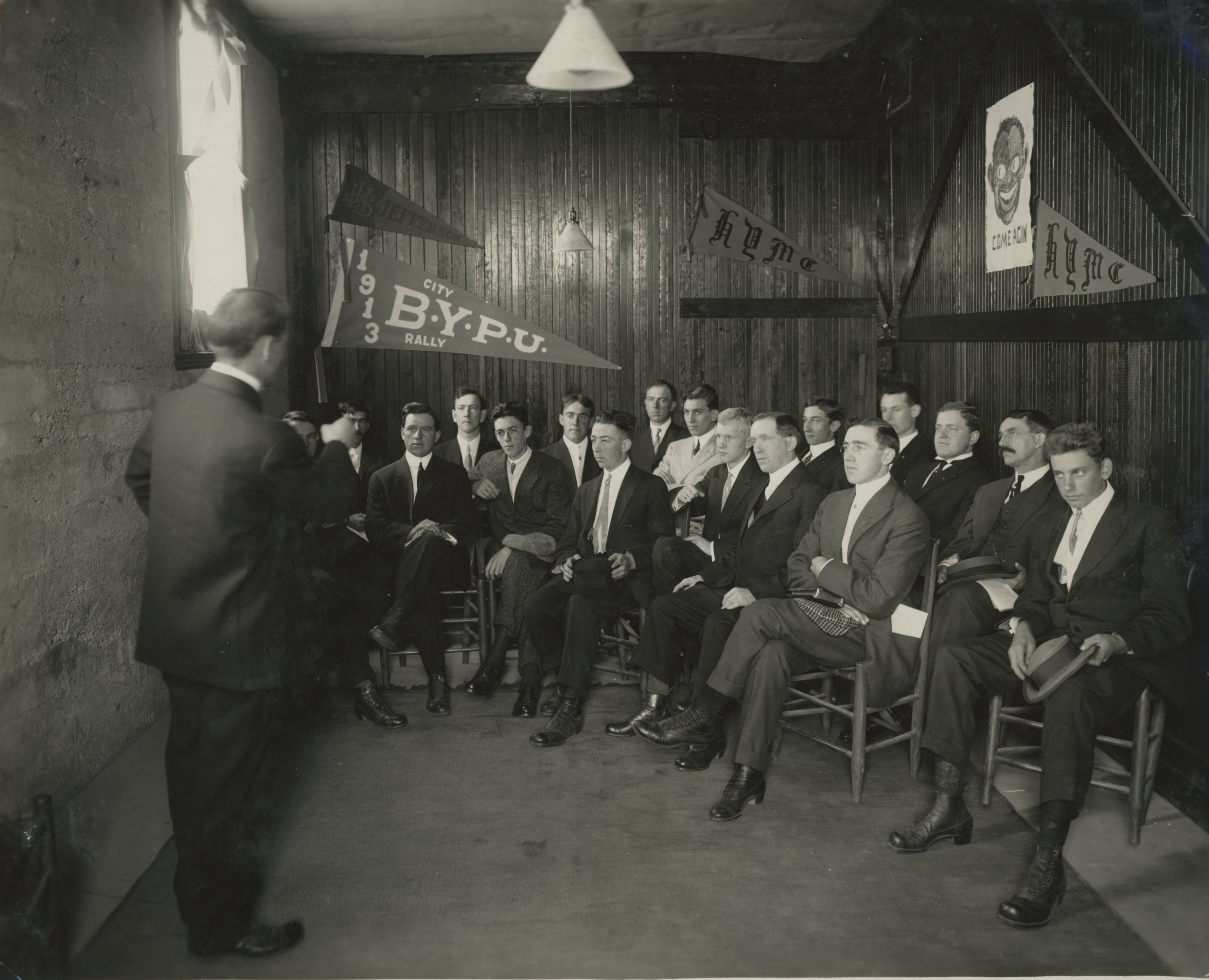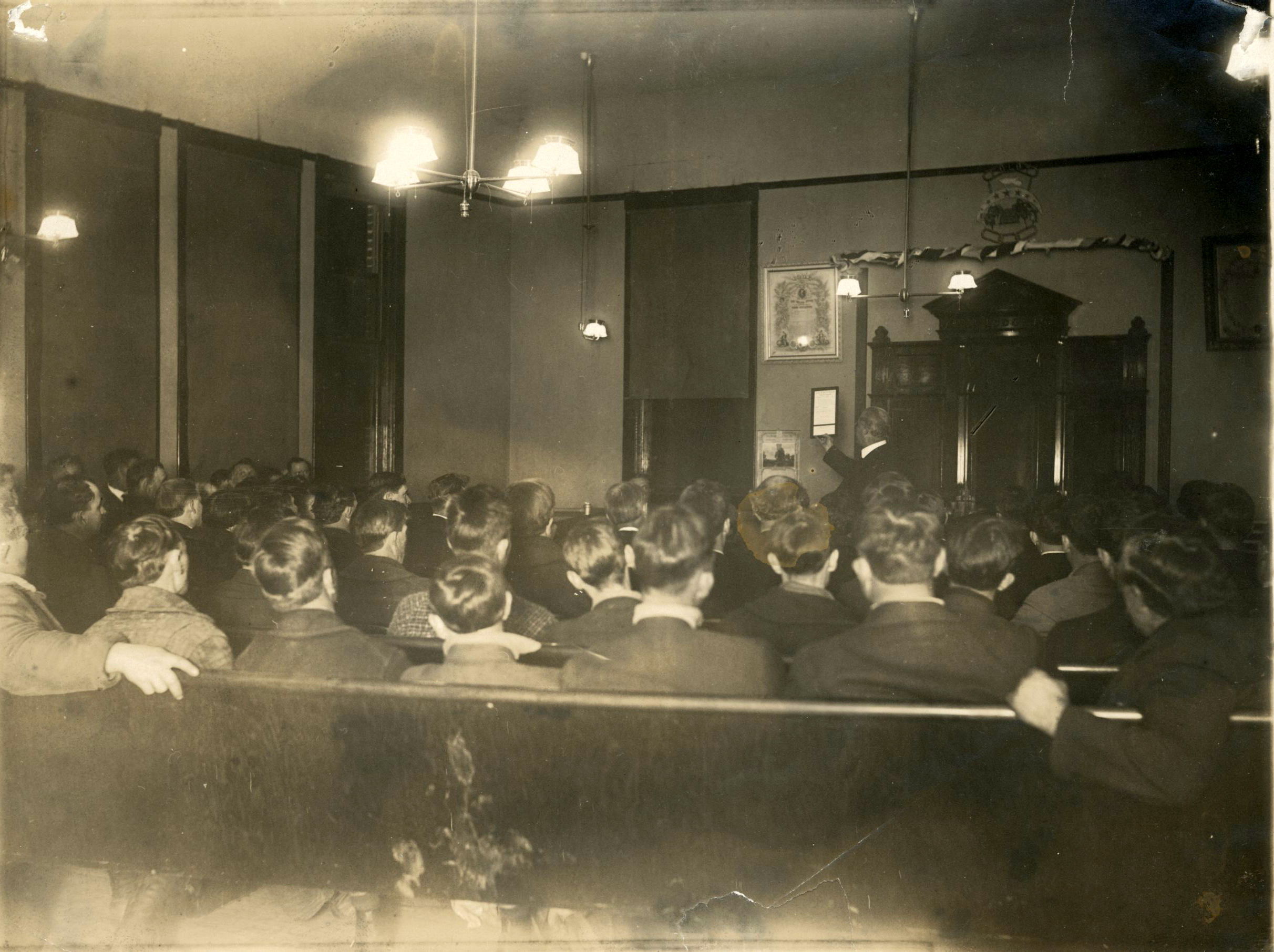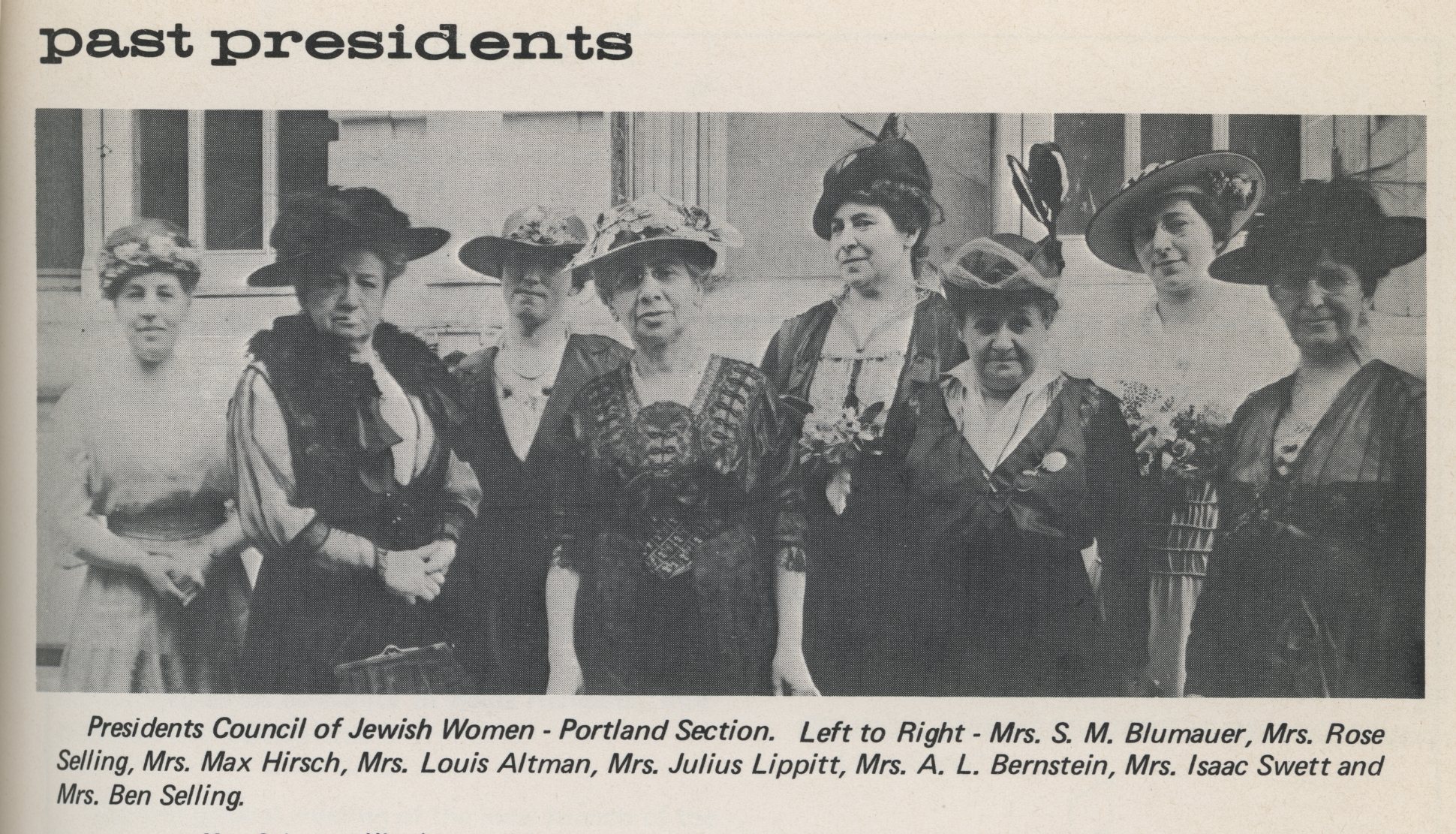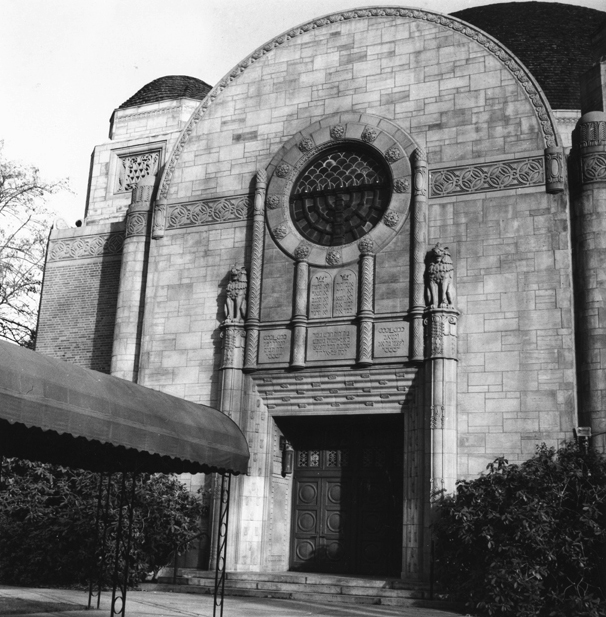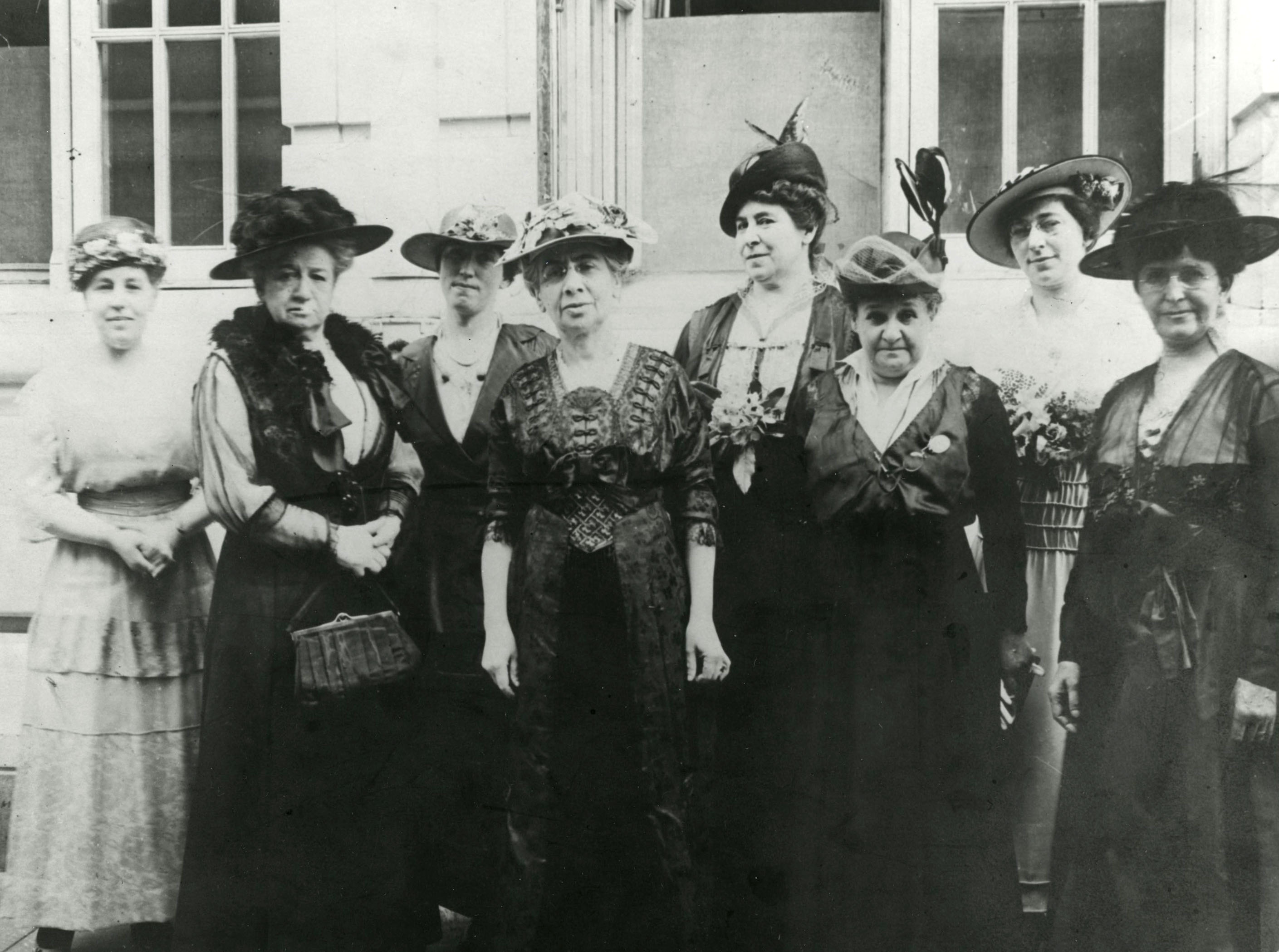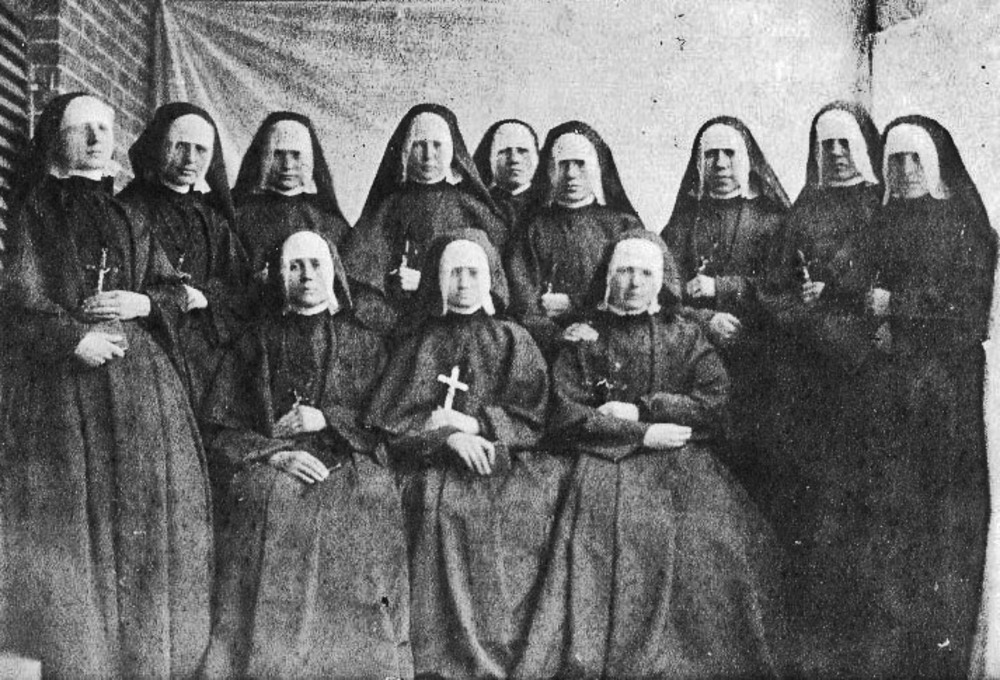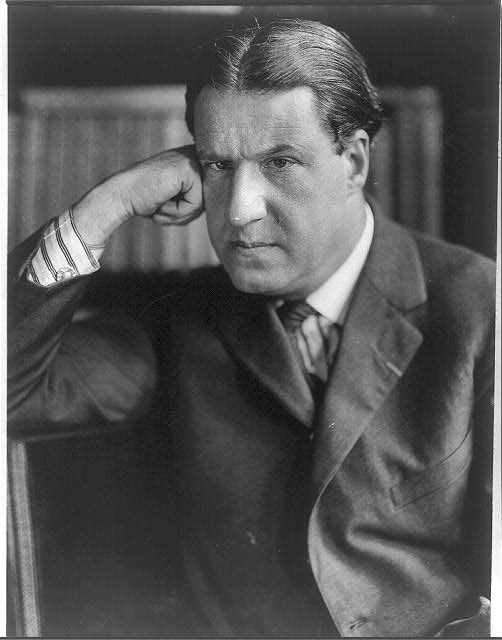Rabbi Jonah B. Wise led Congregation Beth Israel, Portland’s oldest and most prestigious synagogue, from 1907 to 1926. He played a key role in shaping the congregation and the larger Jewish community before leaving Oregon for New York and a career as a leader in national Jewish affairs.
Born in Cincinnati in 1881, Jonah Wise was the son of Rabbi Isaac Mayer Wise, a Reform Jewish leader and founder of Hebrew Union College, where Jonah was ordained in 1903. He served a congregation in Chattanooga, Tennessee, before being called to Beth Israel, which had defined itself as a Reform (liberal) congregation since the late nineteenth century. At Beth Israel, he succeeded Rabbi Stephen Wise (no relation), who would become America's most prominent rabbi and American Zionist leader.
Jonah Wise’s nineteen-year tenure at Beth Israel was the longest of any rabbi to that point. He fully embraced the Reform movement’s emphasis on the compatibility of Judaism with modern life, including the rejection of many traditional practices, such as dietary restrictions and strict observance of the Sabbath, which had historically separated Jews from others. For example, he added a Sunday morning alternative to the traditional Saturday service, an accommodation that recognized that many congregants worked on the Jewish Sabbath. The Sunday “assembly,” which emphasized choral music and lectures by the Rabbi, drew congregants unable to otherwise attend a weekly service.
Passionate about his work with the synagogue’s youth, Wise expanded both educational and social programming to foster community spirit and ethical development. He was a staunch supporter of the local Council of Jewish Women chapter in its efforts to aid immigrant newcomers to the city, and he modernized the educational program at the congregation’s Sunday school.
Jonah Wise shared Stephen Wise’s passion for social activism, espousing liberal Judaism as an inspiration for engagement. As editor of the weekly Portland Scribe, founded in 1919, he frequently grounded social and political messages in Jewish values, promoting progressive causes and condemning prejudice and intolerance. Although Congregation Beth Israel included many business owners, Rabbi Wise was known as a defender of labor, advocating collective bargaining, an eight-hour day, and other workplace reforms.
Rabbi Wise was vice president of the Social Hygiene Society of Portland, which focused on fighting vice and venereal disease. When the Ku Klux Klan became a major force in Oregon politics in the early 1920s, he was part of an ecumenical group that spoke out against them. Under his editorship, the Scribe vigorously opposed the Klan-sponsored Compulsory School Bill, a measure targeting Catholics that was later found unconstitutional by the U.S. Supreme Court. His popularity as a lecturer in Portland presaged his long-running weekly radio show, Message of Israel, heard nationally from 1934 until shortly before his death in 1959.
Unlike his predecessor Stephen Wise, who became a leading American Zionist at a time when the Reform Movement rejected Jewish nationalism as a threat to American Jewish identity, Jonah Wise embraced the movement’s conviction that Jewish identity should be purely religious and ethical rather than national or ethnic. Only later, after the rise of Nazism in Germany and, particularly, after Germany invaded Poland in 1939, did the majority of Reform Jews—including then rabbi of Beth Israel, Henry J. Berkowitz (1928-1949)—come to believe that a Jewish homeland was essential as a refuge for European Jewry.
In Portland, Wise met and married Helen Rosenfeld, with whom he had three children. An avid golfer, he was a founder of the Tualatin Country Club in 1912, which served elite members of the German Jewish community at a time when other clubs excluded Jews. He was a Portland B’nai B’rith leader and served as president of the western district of that organization.
In 1926, Rabbi Wise was called to New York City’s Central Synagogue, where he served until his death. In New York, Wise emerged as an important leader in efforts to aid world Jewry, becoming head of the American Jewish Joint Distribution Committee in 1931. After traveling to Germany in 1933 and returning with dire warnings and eyewitness accounts of Nazi rallies and persecution of Jews, he led a campaign to raise money to assist Jews in leaving Germany. In 1938, President Franklin Roosevelt selected him as a delegate to the Evian Conference, an international meeting in France that attempted—unsuccessfully—to address the Jewish refugee problem. Although he remained an anti-Zionist until the early 1940s and was a founding member of the anti-Zionist American Council for Judaism in 1942, the scope of the Jewish crisis during World War II soon led him to abandon this position. He served as founder and longtime chair (1939-1958) of the United Jewish Appeal, which combined support for Jews in Palestine (later Israel) and Europe.
-
![]()
Rabbi Jonah Wise, 1928.
Courtesy Oregon Hist. Soc. Research Lib., 018430
-
![]()
Meeting of the Oregon Social Hygiene Society, c.1913.
Courtesy Oregon Hist. Soc. Research Lib., photo file 991A
-
![]()
Meeting of the Oregon Social Hygiene Society in eastern Oregon.
Courtesy Oregon Hist. Soc. Research Lib., photo file 991A
-
![]()
Council of Jewish Women, c.1925.
Courtesy Oregon Hist. Soc. Research Lib., 360N559s
Related Entries
-
![Congregation Beth Israel]()
Congregation Beth Israel
Congregation Beth Israel (CBI) is the oldest and most prominent Jewish …
-
![Jews in Oregon]()
Jews in Oregon
Jewish Pioneers: Becoming Oregonians In 1869, Bernard Goldsmith, an i…
-
![Ku Klux Klan]()
Ku Klux Klan
Fiery crosses and marchers in Ku Klux Klan (KKK) regalia were common si…
-
![Neighborhood House]()
Neighborhood House
Neighborhood House, a settlement house and social services center origi…
-
![Pierce v. Society of Sisters (1925)]()
Pierce v. Society of Sisters (1925)
On June 1, 1925, in Pierce v. Society of Sisters of the Holy Names of J…
-
![Stephen S. Wise (1874-1949)]()
Stephen S. Wise (1874-1949)
Rabbi Stephen S. Wise, one of the most significant American Jewish lead…
Related Historical Records
Map This on the Oregon History WayFinder
The Oregon History Wayfinder is an interactive map that identifies significant places, people, and events in Oregon history.
Further Reading
Eisenberg, Ellen. Embracing a Western Identity: Jewish Oregonians, 1849-1950. Corvallis: Oregon State University Press, 2015.
Lowenstein, Steven. The Jews of Oregon, 1850-1950. Portland: Jewish Historical Society of Oregon, 1987.
Nodel, Julius J. The Ties Between: A Century of Judaism on America’s Last Frontier. Portland, Ore.: Congregation Beth Israel, 1959.

